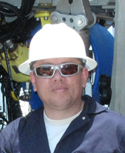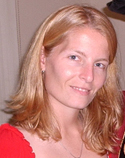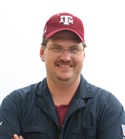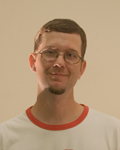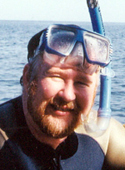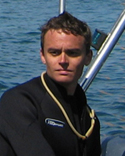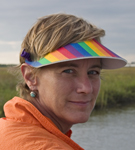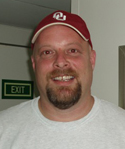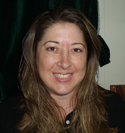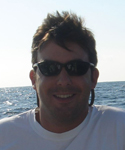Crew*
*Information accurate as of 2007, date of Mardi Gras Wreck project
William R. Bryant
Principal Investigator, Texas A&M University
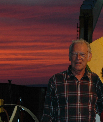
Dr. William Bryant is a Professor in the Department of Oceanography at Texas A&M University. He Received his M.S. and Ph.D. at the University of Chicago. He has over the past 42 years been engaged in research and the practical applications of geology, geophysics, geotechnology, marine archaeology and oceanography. He has worked in most of the world oceans including the Arctic and Antarctic. He has sailed and performed research on all five of the Russian polar seas. He was Co-Chief Scientist on DSDP Leg 10 and scientist on DSDP. Leg 96, and IDOE Legs 113 and 121. On Legs 96, 113 and 121 he was the head geotechnical expert. He served on the Planning Committee of the JOIDES Advisory Group for over five years. Bryant, while at Texas A&M has completed over 33 research cruises most related to higher-resolution geophysical surveying and marine geotechnical research. During his 42 year tenure at Texas A&M he has chaired the committees of over 110 M.S. and Ph.D. graduate students, most of those dealing with geotechnical and high-resolution geophysical research programs. He has published over 300 research papers. He and his students were the first to determine via transmission-electron-microscopy the microstructure and general micro-fabric of marine clays. He was co-editor of the book “Microfabric Of Marine Sediments”. One of his major contributions was the determination of the permeability of fine-grained marine sediments from many locations around the world. He has consulted for a number of major oil companies, and was the Chief Geophysical Consultant for Racal Decca Inc., Technical Disciplines Inc. and TDI Brooks International Inc. He was Head of the Department of Oceanography at Texas A&M University from 1997 to 2000.
From 2001 to 2003, he was a consultant for British Petroleum on the “Atlantis” and “Mad Dog” Prospects in the Gulf of Mexico. At present he heads a large research program on the occurrence of mega-furrows on the continental rise of the Northwestern Gulf of Mexico funded by BHP, BP, MMS and RPSEA and is the Principal Investigator on the British Petroleum “Mardi Gras Project” a project that deals with the archaeology of a ship wreck in the Deep Gulf of Mexico.
Donny Hamilton
Co-Principal Investigator, Texas A&M University

Dr. Hamilton is a native Texan, raised in Pecos, Texas. He received a Bachelor of Arts degree in Anthropology from Texas Tech University in Lubbock in 1967 and a Doctorate in Anthropology from The University of Texas at Austin in 1975. He has been a faculty member of the Nautical Archaeology Program and the Anthropology Department at Texas A&M University since 1978 and holds the George T. & Gladys H Abell Chair in Nautical Archaeology and the Yamini Family Chair in Liberal Arts. Dr. Hamilton is the director for the Center for Maritime Archaeology and Conservation and the former head of the Nautical Archaeology Program. He is also the president of the Institute of Nautical Archaeology, which is affiliated with Texas A&M University. He specializes in underwater archaeology, artifact conservation and restoration, and North American historic and prehistoric archaeology. As director of the Conservation Research Laboratory at Texas A&M University, he has pioneered many of the techniques now used in the conservation of artifacts and has gained an international reputation for his work in this field. Dr. Hamilton's past and present research includes the conservation of artifacts recovered from the shipwreck of the 1554 Spanish Fleet, excavated off the coast of Padre Island in the Gulf of Mexico; the excavation and conservation of the material from the sunken 17th-century English town of Port Royal in Jamaica; and the excavation and analysis of archaeological materials from Granado Cave in West Texas. He is presently in charge of conserving the extensive collection of material recovered from the excavation of La Salle's ship, the Belle, which sank in 1686 in Matagorda Bay, Texas. Dr. Hamilton teaches courses in historical archaeology and artifact conservation. He is a past editor of the Studies in Nautical Archaeology Series published by Texas A&M University Press.
Rick Allen
Producer, Director, Videographer, Nautilus Productions

Allen has been diving the oceans of the world and shooting video since 1983. As a video producer, director and videographer his work has appeared on ABC, A&E;, BBC, CBS, Discovery, The Learning Channel, 48 Hours, ESPN, Lifetime, National Geographic, Turner and more. He has traveled from Cuba to Kazakhstan with the US Military, weathered live broadcasts during hurricanes and gone nose to nose with 14 foot Great White sharks during underwater expeditions. After 12 years in broadcast television Allen opened his own video production company in 1997 focused on documentary production and providing freelance videography and underwater video services to broadcast clients. Since 1998, Allen has been the project videographer on the Queen Anne’s Revenge/Blackbeard Shipwreck Project. His duties include the video documentation of the archaeological survey, activities and recovery of artifacts from the wreck site. Allen is an avid wreck diver and shark lover who can be found most weekends diving the Graveyard of the Atlantic.
Cesar Arias
Archaeologist, Texas A&M University
Cesar Arias graduated from the Ecuadorian Naval School in 1994 and until last year served as a Lieutenant while acquiring a wealth of knowledge about navigation, command control systems, and antisubmarine & surface warfare. Mr. Arias became a Hydrographer in order to join the Oceanographic Institute of the Ecuadorian Navy where he focused in the expansion and display of Electronic Navigational Charts (ENC). After extensive world travel with the navy, he earned a M.S. in Geography from Texas A & M University where he focused on the evolution of Ecuadorian Coasts and the use of GIS. Currently he is a PhD candidate in the Geological Oceanography Program at Texas A & M University in the Department of Oceanography.
Ayse Devrim Atauz
Co-Principal Investigator/Chief Archaeologist, Texas A&M University

Ayse Devrim Atauz received her B.S. in Industrial Design in 1994 from the Middle East Technical University (Ankara, Turkey). Her interest in Archaeology led her to continue her education and research in this field, and she received her M.A in Archaeology and History of Art from Bilkent University (Ankara, Turkey) in 1997, having completed her thesis on the detailed investigation and research of an underwater site in Turkish waters. Specializing further on underwater archeology, Ayse Devrim Atauz has completed her PhD at Texas A&M University, Nautical Archaeology Program in 2004. Fieldwork conducted by Dr. Atauz includes underwater archaeology projects in Turkey, Norway, Portugal and Malta. Her special interest is the adaptation and development of remote sensing technologies and remotely operated vehicles for underwater archaeology and the use of such innovative techniques, technologies, and methods for the exploration and study of archaeological sites in deep water, beyond diving limits.
David Ball
Marine Archaeologist, Minerals Management Service
Dave Ball is the Senior Marine Archaeologist and Dive Safety Officer for the Minerals Management Service, Gulf of Mexico Region, and joined the agency in 1999. Before coming to work with the MMS, Mr. Ball was employed in the private sector, working for several CRM companies in the Pacific Northwest.
Mr. Ball received a Bachelor of Arts degree in anthropology from Sonoma State University in 1992 and a Master of Arts degree in anthropology from Florida State University in 1998. He has over 15 years experience in archaeology and has directed field research on both terrestrial and underwater archaeological sites across the country, including inundated prehistoric sites in Florida and Washington; a Confederate ironclad in Mobile Bay, Alabama; the 1686 French shipwreck Belle, in Matagorda Bay, Texas; and several deepwater shipwrecks in the Gulf of Mexico.
Amy Borgens
Archaeological Consultant, Minerals Management Service

Amy Borgens earned a master’s degree from the Nautical Archaeology Program at Texas A&M University in 2004. Her applied experience in this discipline has ranged from wreck documentation to photography and conservation. She has been associated with shipwreck projects in Turkey, Canada, Louisiana, Oklahoma, Florida, and Texas. As a student at Texas A&M University, Amy was the photographer and radiographer for the Belle shipwreck project; a 17th century French vessel wrecked on the Texas coast. She also directed a project whose focus was the conservation and identification of firearms and other assorted artifacts recovered from a 19th century shipwreck at Pass Cavallo, TX. Other projects on which she has worked include a 1st century Byzantine wreck, a War of 1812 frigate, and a 19th century steamboat. As a nautical archaeologist with PBS&J;, Ms. Borgens has worked on remote sensing projects and hydrographic surveys in both Louisiana and Texas. Her experience with PBS&J has also included involvement with the MMS Seafloor Monitoring Team in investigating several wrecks on the Gulf Outer Continental Shelf.
Alexis Catsambis
Archaeologist, Texas A&M University

Alexis Catsambis is pursuing a doctorate degree in the Nautical Archaeology Program of Texas A&M University. He received a Joint Honours Bachelors Degree in Ancient History and Archaeology & Modern Greek Studies from the University of Birmingham (U.K.). In the field, he has participated in underwater and terrestrial surveys and excavations throughout the Mediterranean. His practical experience in underwater archaeology ranges from traditional visual surveys in Lagos (Portugal) and Kas (Turkey) to a number of deep-water surveys in Calabria (Italy) and the Northern Aegean (Greece), and from the excavation of a Roman navis lapidaria off the coast of Kizilburun (Turkey) to mapping sections of the submerged port of Alexandria (Egypt). At the same time, Alexis has authored a number of articles and presentations regarding laws, historical reports, ship reconstructions and the latest technology as they apply to nautical and underwater archaeology. He has also been involved with the conservation and digital reconstruction of sites and artifacts and has served as an archaeological intern with the Warren Lasch Conservation Center, tasked with the care and study of the Civil War submarine H.L. Hunley. Finally, Alexis has acted as a consultant to museums and state authorities regarding underwater archaeology and has received a number of scholarships and fellowships in support of his studies from institutions including the Onassis Public Benefit Foundation, and the Institute of Nautical Archaeology.
Melanie Damour
Marine Archaeologist, Minerals Management Service
Melanie recently joined the Minerals Management Service as a Marine Archaeologist in 2007. She holds Bachelor of Science and Master of Arts degrees in Anthropology, specializing in Underwater Archaeology, from the Florida State University in Tallahassee, Florida. Melanie’s master’s thesis research created a new model for designing shipwreck survey areas in near-coastal and barrier island settings, which incorporated barrier island geomorphology, sedimentation rates, historic shoreline migration rates, aerial photography, historic cartography and historical research. She has ten years of remote sensing experience with magnetometer, side scan sonar, fathometer, and sub-bottom profiling devices.
Since 1998, Melanie has organized and supervised underwater archaeology projects on shipwrecks and other submerged historic sites throughout Florida and Louisiana. She has also worked on a variety of submerged prehistoric sites in several north Florida rivers and the Gulf of Mexico. In 2005, she conducted a cursory underwater archaeological survey in Lake Petén Itza, Guatemala at a Mayan port site excavated by Tulane University. Her terrestrial archaeological experience includes surveys in Florida, Louisiana, Mississippi, and New Hampshire. She is a member of the Register of Professional Archaeologists.
Kim Eslinger
Maritime Archaeologist and Historian, Nautilus Productions
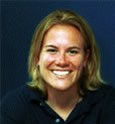
Eslinger graduated with a BA in History and a minor in theatre from Roanoke College in Salem, Virginia. She holds a Master of Arts from East Carolina University, Greenville, North Carolina from the Program in Maritime Studies. Her research for the last several years has focused on the S.S. Commodore, an ocean going steam tug that was illegally running guns to Cuba and sank in 1897 near Ponce Inlet, Florida. Eslinger has worked in the archaeological community since 1998. She spent two years with North Carolina's Blackbeard Shipwreck Project, three years with the Ponce Inlet Lighthouse Association as Principal Investigator for the Commodore Project, and two years with the St. Augustine Lighthouse & Museum and the Lighthouse Archaeological Maritime Program as Field Director. Her underwater work has taken her all along the East Coast, Gulf of Mexico and Great Lakes on projects ranging from Colonial American to World War II sites. Presently Eslinger works as a Maritime Archaeologist for C&C; Technologies in Houston, Texas where she works on undersea surveys and interprets survey data in the Gulf of Mexico. Eslinger is also an avid tech diver and equally at home in either zero vis or blue water.
Ben Ford
Archaeologist, Texas A&M University
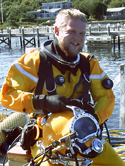
Ben Ford received a B.A. from the University of Cincinnati in 1996 and a M.A. from the College of William and Mary in 1999, specializing in historical archaeology. He is currently a Ph.D. candidate in the Nautical Archaeology Program (Anthropology Department) at Texas A&M; University. He has ten years of archaeological experience throughout North America, including four years as a supervisor for a New England archaeological consulting firm (PAL). Mr. Ford has also worked for state and federal agencies, as well as museums and academic institutions. His interests include maritime, historical, and industrial archaeology, spatial and landscape archaeology, the application of GIS to archaeology, and cultural resource management. Specific projects that Mr. Ford has directed or participated in include the creation of a predictive model for wooden shipbuilding sites in Maryland, the excavation of a 19th-century carriage works, the recordation of two copper mines, recording shipwrecks in Maryland, Rhode Island, New York, Oklahoma, Ohio, and Ontario, multiple marine remote sensing surveys, mapping War of 1812 and Revolutionary War battlefields for the National Par Service, and numerous terrestrial surveys.
Ashley Rose Gould
Archaeologist, Texas A&M University
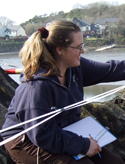
Ashley Rose Gould received a B.S. from Eckerd College (St. Petersburg, FL) in Marine Science specializing in Marine Geophysics, 2005. She is currently finishing her M.A. at the University of Bristol, England in the Maritime Archaeology and History Program where she assisted on several hulk assessments, and geophysical surveys along the southern coast of England. Also while in England, Ms. Gould is leading a geoarchaeological research study of the Cattewater Wreck, the first protected wreck in the United Kingdom, with the assistance of 3H Consulting and University of Plymouth. Next fall, Ms. Gould will join Peter Hitchcock as a PhD candidate in the Texas A & M University -- Department of Oceanography focusing on Deep sea Archaeology through the Geological Oceanography Program. Some of her research experience includes an Oceanography Research Cruise from Mexico to French Polynesia, assisting in the Tampa Bay Project with USGS, integrating geophysical data into Site Recorder and multiple terrestrial surveys & excavations spread from North Dakota and Wyoming to Ireland.
Peter Hitchcock
Project Manager, Texas A&M University
Peter Hitchcock is the Project Manager for Texas A&M University and is responsible for overseeing many different aspects of the project, including planning, field operations, communications between the participating groups, and report submission. He is also serving as one of the project’s archaeologists.
Hitchcock has a Bachelors of Arts degree in Anthropology with a minor in Classical History and a Masters of Arts in Anthropology from Nautical Archaeology Program at Texas A&M University. He is currently a PhD candidate in the University’s Department of Oceanography whose research focuses on deepwater shipwrecks located in the Gulf of Mexico. Over the past decade he has worked on several nautical archaeology projects throughout the United States and abroad.
John Hamilton
Conservator, Conservation Research Laboratory, Texas A&M University
John received his Bachelor of Science degree in Wildlife and Fisheries from Texas A&M University in 1998. He has over 9 years of experience dealing with the storage, documentation, and conservation of terrestrial and nautical artifacts. At the age of 13 he became a certified diver and began to learn the basics of artifact extraction, documentation and conservation on the Port Royal Project in Jamaica.
Upon joining CRL, John has worked on numerous projects, primarily the La Belle shipwreck. Other projects have included the Red River, Denbigh, Manuela and CSS Alabama, the latter is the only Civil War vessel sank in European waters. Most recently, John is assisting with establishing a conservation lab in San Juan Puerto Rico.
Chris Horrell
Marine Archaeologist, Minerals Management Service
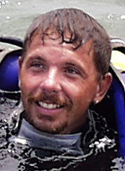
Dr. Christopher Horrell is a Marine Archaeologist with the Minerals Management Service. Dr. Horrell graduated from Southwest Texas State University with a Bachelors degree in Anthropology and History. Continuing his graduate studies, he received a Masters degree in Anthropology from the University of Texas at San Antonio and a Ph.D. in Anthropology from Florida State University. Dr. Horrell has over 14 years of experience organizing and directing field projects on both terrestrial and underwater sites. Much of his focus has been in the southeastern and southwestern United States. In addition, Dr. Horrell has also worked in Central America on several Mayan sites. He has conducted archaeological investigations for private cultural resource management firms and directed field schools for universities. Prior to coming onboard with the MMS in 2003 and during his graduate studies at FSU, Dr. Horrell worked for the Florida Bureau of Archaeological Research (BAR). During his tenure at FSU and with the BAR, Dr. Horrell worked on many underwater projects including a 19th century centerboard schooner near Dog Island, Florida; an early 19th century underwater deposit in the Apalachicola River; and several historic and prehistoric sites along Florida’s coast.
Dr. Horrell is a NOAA divemaster, a member of the MMS Seafloor Monitoring Team, and a member of the Register of Professional Archaeologists. His research interests include cultural resource management, historic archaeology, material culture, ship construction, Spanish colonial history and archaeology, and the history and archaeology of the United States from the mid 18th century to the early 19th century.
Jack Irion
Marine Archaeologist, Minerals Management Service
Dr. Irion received his doctorate degree in archaeology from The University of Texas in 1990. He has over 30 years experience in underwater archaeology and has participated in or directed archaeological expeditions in England, Mexico, Belize, Turkey, Italy, Puerto Rico, and throughout the United States. Prior to joining the MMS in 1995, Dr. Irion served as a private consulting marine archaeologist working under contract to both private industry and state and federal agencies. His work has resulted in the discovery and documentation of numerous historic sites and shipwrecks, including the Confederate Harbor Obstructions in Mobile Bay and the wreck of the steamship Columbus in Chesapeake Bay.
Since joining the MMS, Dr. Irion has directed the Seafloor Monitoring Team, comprised of a group of diver/scientists with the MMS, in the documentation of several historic shipwrecks on the Outer Continental Shelf. These have included the Civil War gunboat U.S.S. Hatteras and the 19th century coastal steamers New York and Josephine, the latter of which was added to the National Register of Historic Places in 2000. Most recently, Dr. Irion has been involved with the investigations of several deep water wrecks discovered in the Gulf of Mexico, including the German submarine U-166 found in 5,000 feet of water and an early 19th century wooden-hulled sailing ship found in 2,650 feet of water.
Samuel Koepnick
Archaeologist, Texas A&M University
Samuel Koepnick received his B.A. in Anthropology from the University of Nevada, Reno in 2005. Before that he received extensive training in both physics and computer science. The combination of these skills has led him to his current research avenue of computer graphics and animation in archaeology.
An avid diver, Samuel Koepnick has over 200 logged dives and is certified as a divemaster. His field experience includes the survey and excavation of Paleolithic sites in the Great Basin of the United States, up to historic mining towns. Most recently he has been a participant of the Lagos survey conducted on the south coast of Portugal.In his spare time, he is active in the community, a student athlete, and a participant in various open-source software projects. He is currently pursuing his M.A. at Texas A&M University in the Nautical Archaeology department.
Laura A. Landry
Archaeologist, L.A. Landry & Associates, Inc.
Ms. Landry received her undergraduate and graduate degrees in anthropology and geography from LSU in 1976 and 1990. Her professional mangement experience includes more than 15 years of owning and operating L. A. Landry & Associates, Inc., a small business that provides marine archaeological and geological survey and interpretive services, and coastal anthropological and historical research.
Ms. Landry’s experience spans over 30 years of participation in terrestrial and underwater cultural resources projects in Louisiana, Texas, Mississippi, Alabama, and Florida. Since 1983, Ms Landry has specialized in the interpretation of high resolution geophysical data and has prepared more than 1,500 historic and prehistoric cultural resources reports for lease block and pipeline rights-of-way surveys on the Gulf of Mexico Outer Continental Shelf, including deep and shallow waters, in the state waters of Texas, Louisiana, Mississippi, Alabama, and the Gulf and Atlantic coasts of Florida. She has overseen ROV deepwater investigations and conventional high resolution geophysical surveys. Her reports are prepared independently for various marine survey, oil and gas, engineering, and telecommunication companies, and federal agencies. Familiarity with federal and state regulatory and permitting requirements, survey design, remote sensing geophysical instrumentation and positioning, and mitigation procedures have supported her work in the preparation of environmental assessments and third-party environmental impact assessments in consultaiton with private environmental and engineering firms. Prior management experience as historic site manager of the Plaquemine Lock State Commemorative Area for the Louisiana Office of State Parks, Louisiana Department of Culture, Recreation, and Tourism, focused on the operations and maintenance of the state commemorative area, curation of accessions, research studies, exhibit planning, and development of interpretive brochures and tours. Ms. Landry has also served as an expert witness for legal counsel providing side scan sonar and sector scanning sonar data interpretation in relation to pipeline litigation.
Ms. Landry serves on the Board of Directors for the Southwestern Underwater Archaeological Society, an organization of trained divers in Texas dedicated to providing volunteer services for shipwreck mapping projects with the Texas Historical Commission.
Curt Pair
Audio, Camera, Lighting, Nautilus Productions
Curt Pair has been covering the events of life and shooting video since 1990. He has covered all facets of life from major sporting events like the World Series, and NCAA finals to weathering life threatening tornadoes & the after math of Hurricane Katrina, the Oklahoma City bombing and everything in between.
His career began early, at the age of 13, as a still photographer for the Army in Pirmasens West Germany. Since then he’s had some sort of camera within arms reach. He turned to video production in 1990. He began his television career in 1991 in Durham, North Carolina, working with Rick Allen for the ABC station WTVD. The two have remained friends since then. Curt moved onto South Carolina, Kansas and Arizona working in the television news business. In 1999, he formed Picture This Productions, Inc., a company that provides complete video production services to all of the major TV networks, most large cable & satellite companies, and large corporations. PTP, as it’s known covers programming for the likes of ABC, CBS, NBC, Fox, ESPN, America’s Most Wanted, the PGA Tour, NBA Entertainment, A&E;, Discovery, TLC (the Learning Channel), National Geographic, Turner, Oprah, Dr. Phil, Taco Bell, Walgreens and more. Chances are if you’ve watched TV, you’ve seen his work. He has earned a solid reputation for his creative lighting and camera techniques.
Curt is well-versed in all facets of video production, from electronic press kits to multi-camera shoots, behind the scenes, reality TV, sports, documentaries and full feature stories for national news and television shows. He is also a very accomplished video editor, which makes his projects jump off screen and come to life.
Larry Reid
Offshore Manager, Veolia Environmental Services
Larry Reid is the Offshore Manager for Veolia Environmental Services. Larry has worked for Veolia for a year and a half, and has over 14 years of experience operating and piloting ROVs. Larry is Veolia’s representative on the Mardi Gras Shipwreck Project and is the shipboard manager for the project. Larry drinks a lot of coffee.
Della Scott-Ireton
Director and Public Archaeologist, Northwest Region, Florida Public Archaeology Network
Della Scott-Ireton graduated from the University of West Florida with a Bachelor's degree in Anthropology and a Master's degree in Historical Archaeology. She also has a Master's in International Relations from Troy University, and a Ph.D. in Anthropology from Florida State University. Della is certified as a Scuba Instructor with the National Association of Underwater Instructors (NAUI). She worked with the Pensacola Shipwreck Survey, West Florida Historic Preservation, Inc., Florida Bureau of Archaeological Research, and the government of the Cayman Islands before joining the
Florida Public Archaeology Network where she serves as the Northwest Region Director. Della is an officer and elected board member of the Advisory Council on Underwater Archaeology and is a member of the Register of Professional Archaeologists. Della's research interests include public interpretation of maritime cultural resources, both on land and under water, and training of avocationals in archaeological methods and practices.
Paul Sjordal
Marine Archaeologist, Florida Public Archaeology Network
Paul Sjordal earned a Bachelor of Arts degree in anthropology from the University of California at Davis in 2000 and a Masters degree in anthropology from the University f West Florida (UWF) in 2007. Paul has been involved in the excavation and recording of terrestrial and maritime archaeological sites. For the past seven years he has focused on maritime archaeology and has excavated sites that include early colonial ships and early twentieth century abandoned vessels. Mr. Sjordal has recently joined the team in order to help the Florida Public Archaeology Network with the public outreach for this project.
During his time as a student at UWF Paul has been involved in the archaeological investigation of ships and shipwrecks throughout the United States and in Africa. He is a NAUI certified Scuba Instructor and a DAN Oxygen First Aid Provider Instructor. In addition to marine archaeology Paul is committed to diving safety, education, and public archaeology.
Lawrence Taylor
Producer, Writer, Videographer, and Biologist, Nautilus Productions
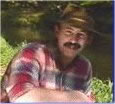
Taylor's photographic career began at the knee of his freelance cinematographer father in Toronto where he also worked as a commercial stills photographer. After completing a BSc degree and diving certification at the University of Guelph, he taught science and math at Pickering College, Newmarket, before moving to Halifax to complete his MSc degree at Dalhousie University. After graduate school, Lawrence developed his underwater videography skills during a three year scientific scallop project in Lunenburg and created Biodiverse Canada Inc. Since then, and 1,000 hours diving and snorkeling later, Lawrence has surfed the technological digital wave in underwater filming, non-linear editing and Internet communications to film, written magazine articles, hosted TV shows, produced Industrial Environmental videos and marine related radio pieces. Since 1997, Lawrence has filed "Under the Sea", a monthly radio column on "Information Morning", CBC, Halifax and continues to give lectures and public video presentations: Dalhousie University, U. of Maine, Ontario Science Centre and Boston Sea Rovers. Lawrence still remains tightly associated with the field of science and continues his research on Atlantic Salmon towards a PhD.
Taylor lives by his motto "If you rub enough talents together, you're bound to get smoke" which sparked the creation of Biodiverse Canada Inc. and has fanned the flames of a decade and a half of exploration in the Canadian Maritimes. Biodiverse Canada Inc, is based in Dartmouth, Nova Scotia and has been the only scientifically based production/filming company in the Maritimes since 1989. The company's specialty is Natural History productions above and below the water line in dry suits to manned submersibles from the Arctic to Haiti for clients like CBC LAND & SEA/COUNTRY CANADA, Survival Anglia, and Discovery. BCI also shoots for dramatic and documentary productions like Paramount's SIGHTINGS, Salter Street's LEXX: THE DARK ZONE and Eco Nova's THE SEA HUNTERS. National and International producers like Real TV, Office Kei, New York Time Television, Omni and Primitive Features have also dipped into BCI's diverse marine and freshwater digital stock footage library.
Home
History
Research Plan
Artifacts
Pictures
Videos
Daily Log



